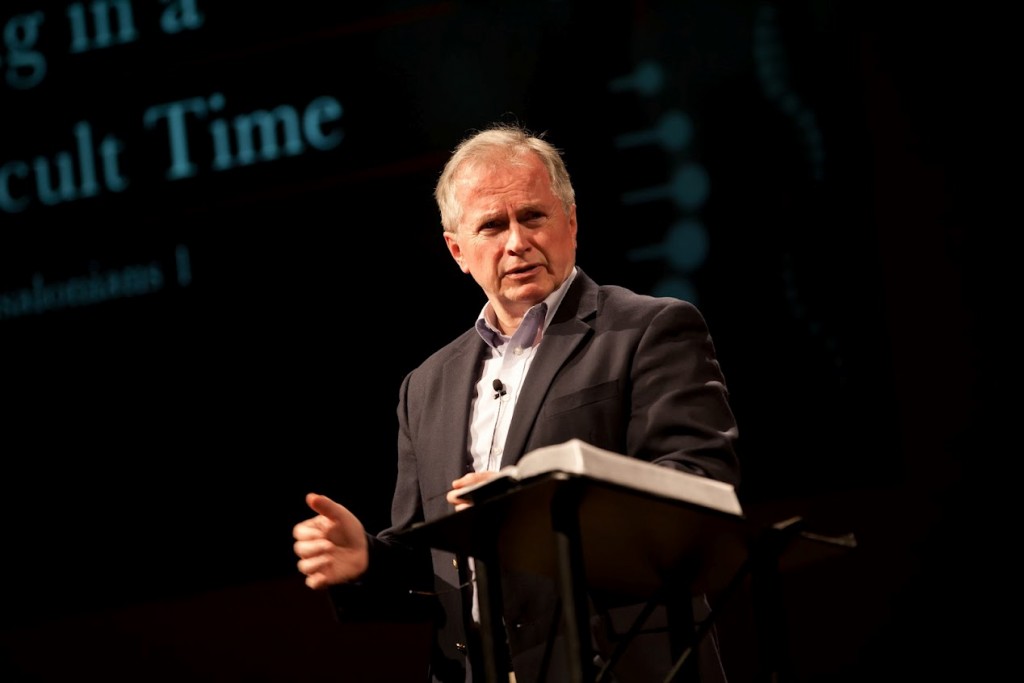
“If you are in any form of spiritual leadership, work at your public prayers. It does not matter whether the form of spiritual leadership you exercise is the teaching of a Sunday school class, pastoral ministry, small-group evangelism, or anything else: if at any point you pray in public as a leader, then work at your public prayers.
Some people think this advice distinctly corrupt. It smells too much of public relations, of concern for public image. After all, whether we are praying in private or in public, we are praying to God: Surely he is the one we should be thinking about, no one else.
This objection misses the point. Certainly if we must choose between trying to please God in prayer, and trying to please our fellow creatures, we must unhesitatingly opt for the former. But that is not the issue. It is not a question of pleasing our human hearers, but of instructing them and edifying them.
The ultimate sanction for this approach is none less than Jesus himself. At the tomb of Lazarus, after the stone has been removed, Jesus looks to heaven and prays, “Father, I thank you that you have heard me. I knew that you always hear me, but I said this for the benefit of the people standing here, that they may believe that you sent me” (John 11:41-42). Here, then, is a prayer of Jesus himself that is shaped in part by his awareness of what his human hearers need to hear.
The point is that although public prayer is addressed to God, it is addressed to God while others are overhearing it. Of course, if the one who is praying is more concerned to impress these human hearers than to pray to God, then rank hypocrisy takes over. That is why Jesus so roundly condemns much of the public praying of his day and insists on the primacy of private prayer (Matt. 6:5-8). But that does not mean that there is no place at all for public prayer. Rather, it means that public prayer ought to be the overflow of one’s private praying. And then, judging by the example of Jesus at the tomb of Lazarus, there is ample reason to reflect on just what my prayer, rightly directed to God, is saying to the people who hear me.
In brief, public praying is a pedagogical opportunity. It provides the one who is praying with an opportunity to instruct or encourage or edify all who hear the prayer. In liturgical churches, many of the prayers are well-crafted, but to some ears they lack spontaneity. In nonliturgical churches, many of the prayers are so predictable that they are scarcely any more spontaneous than written prayers, and most of them are not nearly as well-crafted. The answer to both situations is to provide more prayers that are carefully and freshly prepared. That does not necessarily mean writing them out verbatim (though that can be a good thing to do). At the least, it means thinking through in advance and in some detail just where the prayer is going, preparing, perhaps, some notes, and memorizing them.
Public praying is a responsibility as well as a privilege. In the last century, the great English preacher Charles Spurgeon did not mind sharing his pulpit: others sometimes preached in his home church even when he was present. But when he came to the “pastoral prayer,” if he was present, he reserved that part of the service for himself. This decision did not arise out of any priestly conviction that his prayers were more efficacious than those of others. Rather, it arose from his love for his people, his high view of prayer, his conviction that public praying should not only intercede with God but also instruct and edify and encourage the saints.
Many facets of Christian discipleship, not least prayer, are rather more effectively passed on by modeling than by formal teaching. Good praying is more easily caught than taught. If it is right to say that we should choose models from whom we can learn, then the obverse truth is that we ourselves become responsible to become models for others. So whether you are leading a service or family prayers, whether you are praying in a small-group Bible study or at a convention, work at your public prayers.”
D. A. Carson, A Call to Spiritual Reformation: Priorities from Paul and His Prayers (Baker, 1992), 34-35. HT: Brian Hedges
